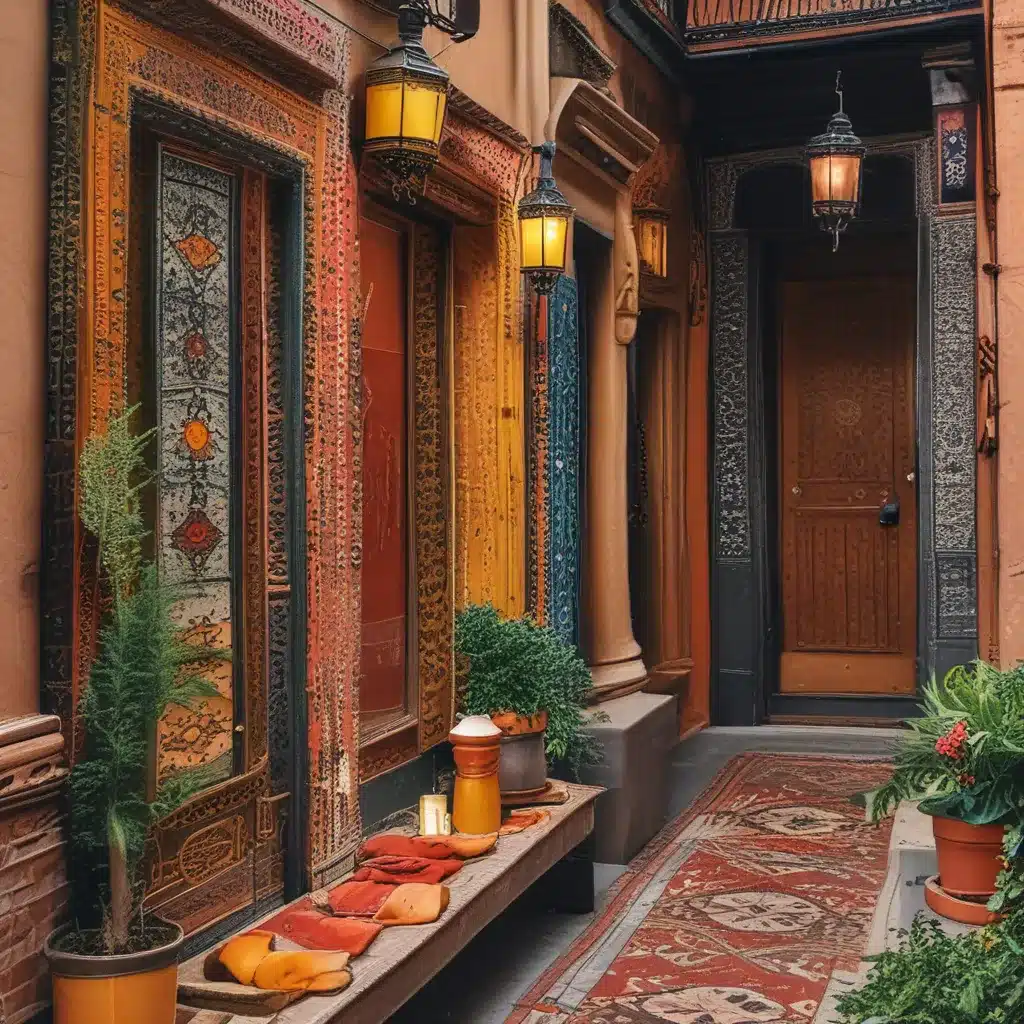
Discovering the Heart of Moroccan Cuisine in the Big Apple
As I step through the doors of El Bahia, a Moroccan restaurant nestled in the heart of New York City, I’m immediately transported to another world. The warm, fragrant air envelops me, carrying the scents of exotic spices and simmering tagines. It’s as if I’ve been whisked away to the bustling souks of Marrakech or the serene courtyards of Fez, leaving the busy streets of Manhattan behind.
El Bahia, which means “the beautiful” in Arabic, is more than just a restaurant – it’s a gateway to the rich cultural heritage of Morocco. The moment I’m seated, I’m greeted by the warm smile of my server, who offers me a steaming cup of fragrant mint tea. As I sip the aromatic brew, my eyes wander around the meticulously decorated dining room, taking in the intricate tilework, the ornate lanterns, and the vibrant textiles that adorn the walls.
Uncovering the Diverse Flavors of Morocco
But the real magic happens when the food arrives. The menu at El Bahia is a culinary journey through the diverse regions of Morocco, each dish a testament to the country’s rich history and the skillful blending of flavors. I start with the classic beef and vegetable tagine, the tender meat falling off the bone and mingling with the earthy notes of cumin, cinnamon, and ginger. As I savor each bite, I’m transported to the bustling streets of Fez, where the scent of simmering tagines fills the air.
Next, I venture into the realm of couscous, a staple of Moroccan cuisine. The version presented to me is a work of art, fluffy grains of semolina crowned with succulent chicken, raisins, and toasted almonds. The combination of sweet, savory, and nutty flavors is a revelation, and I find myself marveling at the culinary artistry that has gone into this seemingly simple dish.
Moroccan cuisine is known for its use of fragrant spices, and the chefs at El Bahia do not disappoint. I try the lamb and prune tagine, where the rich, succulent meat is infused with the sweetness of dried plums and the warmth of cinnamon and ginger. The flavors meld together in a symphony of complexity, each bite a delightful surprise.
Exploring the Cultural Tapestry of Morocco
As I savor the last bites of my meal, I can’t help but reflect on the cultural significance of the dishes I’ve tasted. Moroccan cuisine is not just about the flavors; it’s a tapestry of history, tradition, and community. The recipes passed down through generations, the spice blends carefully curated, and the techniques honed over centuries – all of these elements come together to create a dining experience that is truly immersive.
I think back to the exhibition I recently visited, “The Warmth of Other Suns: Stories of Global Displacement,” which explored the universal experience of migration through the lens of art. In a similar way, the food at El Bahia tells the story of the Moroccan people, their journeys, and the traditions they’ve carried with them across borders and continents.
Savoring the Warmth of Moroccan Hospitality
As I reluctantly prepare to leave, I’m struck by the sense of warmth and hospitality that permeates every aspect of the dining experience at El Bahia. It’s not just the food that nourishes the soul, but the genuine care and attention to detail that the staff brings to each interaction. They’re not just serving meals; they’re sharing a piece of their cultural heritage, inviting me to step into their world and savor the richness of Moroccan traditions.
My trip to Morocco may be a distant memory, but the flavors and experiences I’ve had at El Bahia have reignited that sense of wonder and discovery. As I step back out onto the bustling streets of New York City, I carry with me a newfound appreciation for the depth and diversity of Moroccan culture, and a deep desire to return to this oasis of warmth and authenticity.


